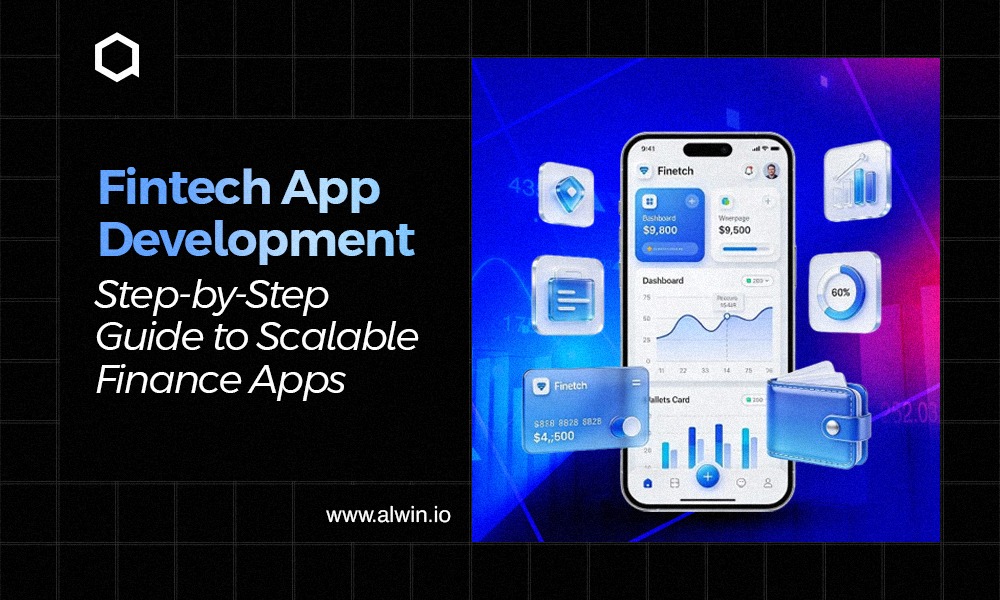As the world of digital finance continues to expand, cryptocurrency wallets have become a vital tool for millions of users worldwide. Over 89 million people are estimated to own and use cryptocurrency wallets in 2023, and the numbers keep climbing as the trend continues. The ease of securely storing, sending, and receiving digital assets through these wallets is the reason for this surge in popularity.
The future of cryptocurrencies wallets seems even more promising. Multi-signature authentication, decentralized finance integration, and even artificial intelligence-driven wallets are some of the advancements that are poised for exponential growth. As technology evolves, wallets are getting smarter, safer, and more integrated with other financial offerings. This post explores the latest trends and what's in store for digital currency wallets, giving users a more seamless experience. Are crypto wallets going to be as ubiquitous as mobile banking apps today? Let's see what happens.
Future Prediction of Cryptocurrency Wallets
Crypto wallets are advancing rapidly. The global market was valued at approximately $8.42 billion in 2022 and is projected to grow at a 24.8% compound annual growth rate (CAGR) from 2023 to 2030. The crypto wallet market size is forecast to increase by USD 474 million and is estimated to grow at a CAGR of 18.55% between 2023 and 2028. Who knows this is only the prediction rate it may also overcross these market fluctuations.
What is a Cryptocurrency Wallet?
A cryptocurrency wallet is a digital device that facilitates the storage, and transfer of digital currencies such as Bitcoin, Ethereum, and other cryptocurrencies. It can be compared to a conventional wallet that you carry on a daily basis, except that instead of storing cash, it houses your digital currency and private keys, which are utilized to gain access to your cryptocurrencies.
Imagine that you would like to send some money to a friend. With a traditional wallet, you might take cash out or use your bank app to send funds. With a cryptocurrency wallet, you will be able to send Bitcoin or any other digital currency just as easily. Your private keys are stored in the wallet, which allows you to access and manage your cryptocurrency securely.
To put it simply, if you have ever utilized PayPal or a mobile banking application to transfer funds or make purchases, you possess a basic understanding of the operation of a cryptocurrency wallet. The distinction lies in the fact that with crypto wallets, it is solely you who possess complete authority over your funds, as there are no intermediaries or banks involved. You and the technology will manage your digital assets in a decentralized way.
Different Types of Cryptocurrency Wallets
Cryptocurrency wallets are available in various forms, each with its own set of applications, security features, and degree of convenience. A breakdown of the major types can be found here.
Hot Wallets (online wallets)
Hot wallets are designed to be easy to access and are connected to the internet. They are ideal for daily transactions and quick access to digital assets.
Mobile Wallets
These are apps you install on your smartphone. Think of it as a mobile banking app, but for managing cryptocurrencies. One can easily send or receive cryptocurrency with a few taps. Examples of popular examples include Trust Wallet and MetaMask.
Desktop Wallets
Desktop wallets, installed directly on your computer, provide a balance between security and convenience. They are suited for users who require frequent access, yet still hold a certain level of protection.
These wallets, which are accessible via browsers, are hosted online and may be accessed from any device that is connected to the internet. For example, Coinbase and Binance wallets.
Cold wallets (offline wallets)
Cold wallets securely store cryptocurrency offline, rendering them highly secure and resistant to hacking. These wallets are ideal for long-term holding or large amounts of crypto.
Hardware Wallets
Hardware wallets are physical devices that are designed to store your private keys offline. Hardware wallets function as a vault for your digital assets, ensuring maximum security. Examples include devices such as Ledger and Trezor.
Paper Wallets
Paper wallets entail the process of printing your private and public keys onto a piece of paper. While paper wallets are extremely secure from online threats, they are vulnerable to physical damage or loss.
Custodial Wallets
These wallets, which are accessible via browsers, are hosted online and may be accessed from any device that is connected to the internet.
Non-Custodial Wallets
In these wallets, you possess complete control over your private keys. It’s like holding cash, with no third party involvement. Exemplary examples include Exodus and Electrum.
Multi-Signature Wallets
Multi-signature wallets necessitate multiple signatures in order to authorize transactions. These are useful for businesses or joint accounts where more than one person needs to approve a transaction, thereby enhancing security.
Hardware Security Modules
An HSM wallet is a hardware device used to generate, store, and manage cryptographic keys. These wallets are typically used by institutions and companies for safeguarding larger amounts of cryptocurrency assets.
Each type of wallet comes with its own advantages and disadvantages, such as security, convenience, and usability. Choosing the right one depends on how frequently you trade, the amount of cryptocurrency you hold, and your security priorities.
Advanced Crypto Wallet Features Set to Dominate the 2025 Market
As the world of cryptocurrency continues to evolve, cryptocurrency wallets are becoming increasingly sophisticated. By 2025, several advanced features are expected to transform the future of crypto wallets, making them much more than just storage solutions for digital assets. We will examine the key features that will likely dominate the market.
Cross-Chain Bridge
One of the most significant obstacles in the cryptocurrency industry pertains to the transfer of assets across diverse blockchain networks. With the implementation of cross-chain bridge technology, cryptocurrency wallets will facilitate seamless asset transfers across multiple blockchains. Users will no longer be restricted by the boundaries of individual chains, such as Ethereum, Bitcoin, or Binance. This feature will significantly enhance interoperability, ensuring seamless and adaptable asset management.
Integrated Trade Module
In 2025, Wallets will offer in-app trading modules, allowing users to buy, sell, and swap crypto directly within the wallet interface. This feature eliminates the need to transfer assets to external exchanges, providing a more convenient, secure, and efficient method of trading. Advanced trade modules could also feature price alerts, limit orders, and portfolio management tools in order to enhance the overall trading experience.
Built-in Gaming Functionality
As play-to-earn games and blockchain gaming continue to grow in popularity, crypto wallets will start integrating gaming modules into their wallets. Users will have the capability to access blockchain games, receive rewards, and even store in-game assets such as NFTs directly within their wallets. This feature is expected to transform the gaming industry by creating a bridge between gaming, earning, and asset management.
Staking Options
In the future, staking, or locking up assets to earn rewards, will be a central feature of crypto wallets. With the ability to stake various cryptocurrencies directly from the wallet, users can earn passive income without the need to use third-party platforms. This feature will improve the appeal of crypto wallets for long-term investors looking to increase their earnings.
NFT Integration
Non-fungible tokens are becoming an integral part of the digital economy. Advanced wallets will enable users not only to store but also to display, trade, and manage their NFTs. Whether it pertains to digital art, collectibles, or in-game items, the wallet will function as an NFT hub, facilitating users' participation in the expanding NFT ecosystem.
Cloud Sync
With cloud sync capabilities, wallets will provide a higher level of convenience by allowing users to access their accounts from multiple devices. Regardless of whether you are utilizing a mobile phone, desktop, or tablet, your wallet data will be automatically synchronized across all devices. This feature allows users to manage their assets without having to constantly backup their wallet data manually.
User-to-User Chat
As the social aspects of cryptocurrency expand, wallets will increasingly incorporate secure, encrypted user-to-user chat capabilities. This feature will enable users to securely communicate, send, or request transactions, and share information without leaving the wallet application. It enhances the social interaction layer in the cryptocurrency world, creating a more connected and user-friendly experience.
As cryptocurrency wallets continue to evolve with advanced features such as cross-chain bridge, trade module, gaming integration, staking, NFTs, cloud sync, and user-to-user chat, they will become comprehensive tools for digital asset management, trading, and entertainment. The next frontier for wallets is represented by these capabilities, making them indispensable components of the blockchain ecosystem by the year 2025.
Why You Should Choose WeAlwin as Your Crypto Wallet Development Company?
The right partner can make a difference in a world where digital currencies are reshaping financial landscapes. You should choose WeAlwin to create an innovative, secure, and future-proof cryptocurrency wallet.
WeAlwin doesn't just build wallets; we craft solutions that are ready for the future. Your wallet is not only competitive today, but designed to evolve and stay relevant as the blockchain and crypto space advances. We tailor our solutions with tomorrow's innovations in mind, whether it's integrating cross-chain capabilities or introducing AI-driven features.
Security is more than just a priority for us. Multi-signature authentication, real-time fraud monitoring, biometric verification, and advanced encryption are some of the advanced security features in our wallets. WeAlwin goes above and beyond the norm to safeguard your digital possessions from lapses and online assaults.
A wallet is more than just a storage device; it's an interface for financial freedom. WeAlwin emphasizes designing wallets that provide a seamless, intuitive user experience on all devices, be it mobile, web, or desktop. We ensure that your users have an easy, smooth, and secure journey when managing their digital assets.
WeAlwin provides long-term cryptocurrency wallet development support, not just building and handing over a wallet. New features, security patches, and performance improvements are constantly updated in your wallet. From design and implementation to post-launch success, we're there for you.
We appreciate your financial commitment and provide competitive pricing options that deliver tangible benefits. WeAlwin offers transparent, cost-effective solutions that allow you to get a wallet packed with advanced features without stretching your budget.



